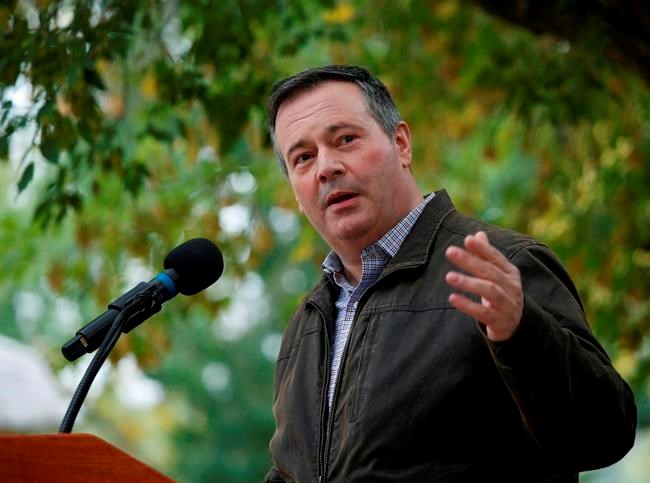EDMONTON — Alberta is releasing more funding to help keep small- and medium-sized businesses solvent during the COVID-19 crisis.
Premier Jason Kenney says an extra $10,000 will be made available per organization — on top of previous grants totalling no more than $20,000 — for a new maximum of $30,000.
‚ÄúBusiness owners can use this money to support their needs, whether it‚Äôs paying wages, paying for cleaning supplies, inventory or preparing for a safe reopening,‚Äù Kenney told a news conference Wednesday.¬Ý
The province is directing $120 million to the new Enhanced COVID-19 Business Benefit.
Eligible businesses must have fewer than 500 employees and have seen revenue plummet by at least 60 per cent during the pandemic.
The province hopes to have the program running by April as the previous grant program is completed.
The Canadian Federation of Independent Business said the money needs to come much faster.
“It’s mind-boggling why the Alberta government is asking the hardest hit small businesses to wait until April for additional support when an existing program is in place to roll out funding now,” Annie Dormuth, the CFIB's Alberta director, said in a news release.
‚ÄúThis move makes no sense and does not reflect the realities of small businesses, many of which are barely hanging on.¬Ý
“Small businesses are not in a position to wait for additional funding or have provincial or federal support programs turned off.”
The Opposition NDP said the United Conservative government gives with one hand and takes with the other, noting the revenue-drop eligibility rate has doubled to 60 per cent from 30 per cent with the new program.
“Jason Kenney and the UCP have continuously stalled on small business supports and today’s announcement is yet another smoke-and-mirrors trick to try to convince Albertans that they’re actually helping owners and their employees during the difficult COVID-19 pandemic,” said NDP economic development critic Deron Bilous.
Retail shops are currently open at 15 per cent customer capacity. But entertainment venues, including bingo halls, movie theatres and casinos, are still closed.
Restaurants that were restricted to takeout or delivery returned last week to limited in-person dining. Fitness centres were also given a green light for one-on-one training. Some youth sports and activities have also resumed.
Indoor social visits remain banned and outdoor gatherings are limited to 10 people.
The province has committed to slowly returning the economy to normal in four stages tied to hospitalization rates.
Dr. Deena Hinshaw, Alberta's chief medical officer of health, said there were 277 new cases of COVID-19 in the province. There were 370 people in hospital with the illness, 60 of whom are in intensive care. There were also seven more deaths, bringing that total to 1,798.
Hinshaw said she is seeing a small but concerning rise in those who are unwilling to work with contact tracers.
She said usually less than one per cent of respondents won’t call back or won’t help the tracers. That figure doubled to almost two per cent in January and is 1.3 per cent so far in February.
“This leaves gaps that COVID is happy to fill,” said Hinshaw.
“Given how easily this virus can be passed on, even a handful of individuals not co-operating can lead to significant spread quickly, which puts our ability to keep easing restrictions at risk.”
Alberta has also reported 225 variant cases of COVID: 218 of the United Kingdom strain and seven of the South African one. The variants are far more contagious than the original novel coronavirus and, if not kept in check, can quickly overwhelm the health system.
This report by The Canadian Press was first published Feb. 17, 2021.
Dean Bennett, The Canadian Press



